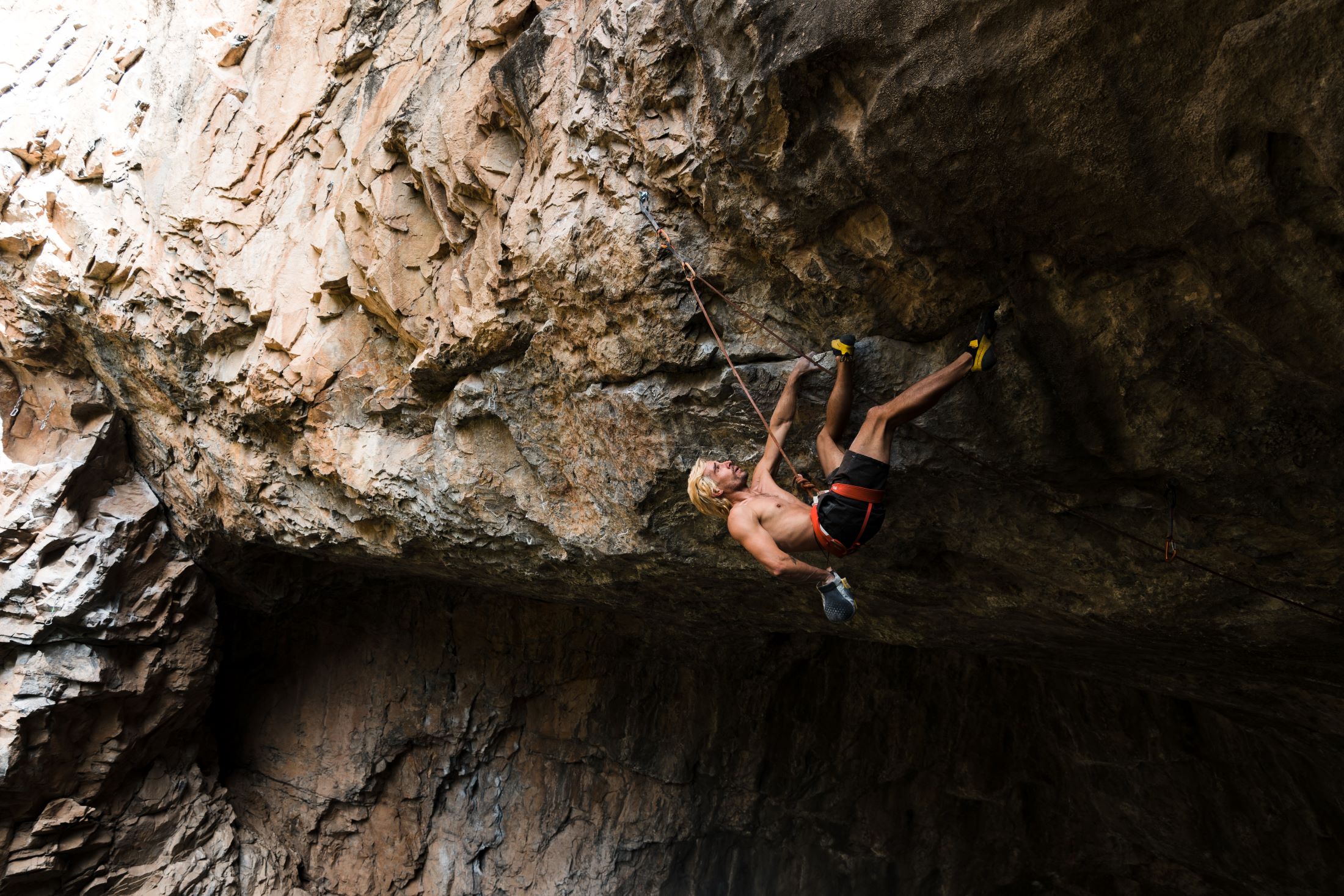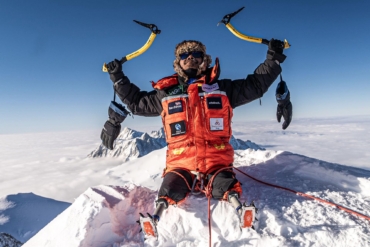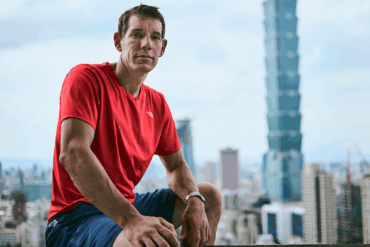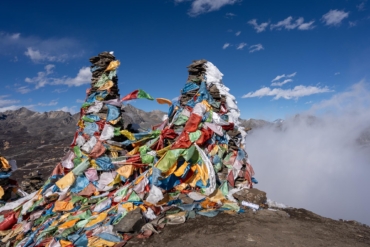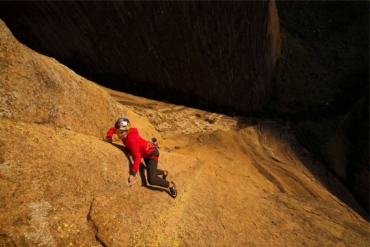If you think ageism isn’t an issue in rock climbing, chances are you’re younger than 40.
Like so many athletic pursuits, climbing — and the climbing industry and media — have long prized youth and its implied strength, health, and vigor. Look around at climbing films, ads for gear, and brands’ athlete rosters. And look at the national and World Cup competition scenes.
Top climbers over 30 are an anomaly, with their age often commented upon. I’m thinking of Akiyo Noguchi, who was a target for these remarks from commentators at a whopping 32 in the Tokyo Olympics. And climbers over 40 in the upper echelons are nearly nonexistent.
And yet ours is an experiential sport, and the more years you have in the game, the wiser you get at decrypting moves, managing your energy, and keeping yourself safe and injury-free. Even if your body is in its slow, inevitable decline. In fact, you can often offset age-related performance decline through experience and training or even surpass your younger self — more on that later.
So why is it that we hear so little about older climbers, or that when we do, it’s almost always accompanied by the hackneyed “still.” As in, “so-and-so is still crushing at age 56.” Shouldn’t we be more enlightened at this point?
Hell, a 59-year-old, Pietro Bassotto, just ticked a 5.14c in Italy — L’Extrema Cura Plus. Former World Cup champion Robyn Erbesfield has been putting down V11s in her mid-50s. And the Brits Neil Gresham and Steve McClure are executing scary 5.14 headpoints in their early 50s.
Clearly, age need not be a barrier to climbing hard.
Ageism in Climbing
‘Sir, Excuse Me? Sir?’

Two summers ago, when I was a youthful 48 (I’m 50 now; 51 soon), I was at Crag 6 in Ten Sleep, Wyo., on a busy August day. I was certainly among the oldest climbers there, but I wasn’t thinking about it in those terms.
Have you ever had to remind yourself, “I’m XX years old today, and so I must act this age around other humans”? No. You’re just you. Such is the continuum of life. Or, more existentially, the reality of being a mind and soul locked in a disintegrating cage of muscle and bone.
That day, I lowered after onsighting a climb on the pocketed sweep of the Rap Stars Wall. The climb had been hard enough, but I never felt like I was going to fall.
Down on the ground, some big-voiced poltroon had been announcing his presence at the crag all afternoon. He was spraying about this route and that and ordering his subalterns to climb only on routes he’d designated as commensurate with their abilities. This blowhard started saying, “Sir, excuse me? Sir?” in my general direction.
Having no idea he was talking to me, I ignored him. I mean, who calls someone “sir” at the crag? I had 5-day stubble and was wearing sap-stained basketball shorts and a ratty T-shirt. I wasn’t sporting a lambskin briefcase and a three-piece suit from Brooks Brothers.
But the guy kept pressing. Finally, I figured out that he meant me. I looked over.
“What’s up?” I said.
“How hard was that route you just did, sir, and was that onsight?” So, I was the “sir” in question …
“5.13a, and yes, onsight,” I responded, slowly turning away.
He shook his head in disbelief. Mind blown. Apparently, people who look like I do — gray hair, in the late 40s — don’t actually have one foot in the grave and are allowed out in public. Hell, we may even succeed on the occasional rock climb!
The Culprits: ‘Bros’ Stories
In my informal survey of friends my age or older — some in their 60s and 70s — I found one commonality to their stories of ageism at the cliffs. It was almost always directed their way by bros, young men in their teens and 20s. This has been my experience as well. Testosterone, ignorance, and insecurity are a losing combination.

Nancy and John Bouchard
Nancy Bouchard is a former sponsored and competition climber based in Bend, Ore. She lives with her husband, John Bouchard, a badass rock climber and alpinist who put up the seminal mixed climb the Black Dike (WI4 M3) on Cannon Cliff, N.H., free solo back in 1971 when he was 19.
One day while back East, the Bouchards took a family trip to Whitehorse Ledge to climb the Standard Route (5.5 R) with their three young daughters. As they were roping up, some locals below the route began griping about “tourists who had no idea what they were doing.”
Then one climber said, “Let me know if you need a hand with your grandpa,” to one of the Bouchards’ daughters — having no idea he was belittling a New England legend. Recalls Nancy, “All five of us topped out before that party of two reached midway up the cliff.”
“I think most of the time, the ageism is in the form of the younger person thinking the older person is less experienced or doesn’t know what they’re doing,” says Nancy. “Which is pretty weird since experience [in climbing] makes a big difference.”
Chuck Odette

Chuck Odette has been a mainstay in the American scene for decades. He retired from a job at Petzl North America and is on the road cragging. Ripped and perpetually fit, he and his wife, Maggie, regularly take down 5.13s and 5.14s. If you’ve climbed in Maple Canyon or at Ten Sleep, you’ve surely seen them. Chuck is in his mid-60s and has had a couple of decades of dealing with this weird energy.
“Perhaps the most common scenario (happened again yesterday in the Pipedream, actually) is that some strong, young(er) cranker, typically male, who’s breaking into 5.13 sees me and Maggie doing one of the easy 13s for our warm-up routine,” says Odette.
“They then assume it must be the ‘easy tick’ for that grade since the ‘old guy’ or ‘old gal’ is walking up it. But what they don’t know is that I’ve done it a thousand times as a warm-up.”
This would-be crusher then ignores the dozen other awesome nearby routes of the same grade in favor of this presumed easy tick with, says Odette politely, “less-than-promising results.”
Lynn Hill
Lynn Hill, the first person to free the Nose (VI 5.14a) of El Capitan in 1993, recounts a story that Lisa Hathaway, a longtime Moab local, told Hill about an encounter she had at the Big Bend Boulders east of town. Hathaway, in her 50s, has been bouldering there for years and knows the circuit well. She was out there climbing one day while some young guys were trying various boulder problems.
“The boys just ignored her until she walked up their projects right in front of them,” says Hill. “Before she did that, they looked right through her. Lisa said, ‘It’s hard to look through a person who is over six feet tall!’”
Lee Sheftel
Lee Sheftel, who lives in Carbondale, Colo., is a fixture at Rifle. He was a mentor to me when I was in my late teens, and he was in his mid-40s — younger than I am now. At age 59, he ticked Millennium (5.14a) in the Pipedream cave in Maple Canyon. In 2016, at age 70, he did the epic Grand Traverse. This involves ticking 10 summits along the spine of the Tetons in 3 days.
Like Odette, Sheftel has been dealing with age discrimination for decades. His hair was already nearly all gray when I began climbing with him in New Mexico in the 1980s. Sort of like mine is now.
One day in Yosemite in the early 1990s, when he was in his late 40s, Sheftel had his sights set on a 5.12c sport route.
“Some very young lads walked up and asked me in disbelief, ‘Are you going to try that climb?’” When Sheftel said, he was, one guy said, “Well, this I gotta see!” Tweaked, Sheftel blew off stick-clipping a high first bolt and asked his wife, Cheryl, to spot him. He proceeded to fire the climb.
Back on the ground, he asked one of his interlocutors what his beta was on the crux, and the climber said sheepishly, “Well, admittedly, I’ve never been able to do it.”
I was with Sheftel at Maple Canyon some years ago when he was in his 50s and had the same scenario play out with a young couple. It was beyond entertaining to watch Sheftel flash the alpha bro’s project, ego-checking him in front of his girlfriend.
A Positive Spin on Ageism
However, it’s not all doom-and-gloom for us elder statespeople out at the rock. “Maybe I’ve been really lucky, but I can’t really think of a time when I encountered a clear display of ageism (when climbing) other than being called an ‘old fart’ or something by a friend,” says Bill Ramsey, a professor of philosophy at the University of Nevada, Las Vegas. Ramsey is in his early 60s and has been climbing 5.13 and 5.14 for the past 2 decades.
Besides, Ramsey points out, it’s perhaps not bigoted to act surprised or to note when older climbers are pulling down. “Older people are at a significant disadvantage because the evidence is overwhelming that, physiologically, we are,” Ramsey says. Per the National Institutes of Health, we lose 3-8% of our muscle mass per decade after age 30, a rate of decline that accelerates after 60.
He’s also seen deference toward older members of the community like him and Sheftel at areas like Rifle. At the harder crags, they may be hanging out with top-level climbers half their age.
“The summertime Rifle community in the canyon is a relatively older community, with many folks in their fifties and sixties living out of trailers or vans. We used to joke about putting in shuffleboard,” says Ramsey. And he expects we’ll see more of this as America’s wave of original sport climbers retires and hits the road.
A Different Outlook
Bob Siegrist
Bob Siegrist (father of the pro climber Jonathan) is another badass veteran. In July 2017, he sent his hardest climb, Blue Light Special (5.13b), in Ten Sleep at age 67. In December 2019, he summitted the Himalayan Peak Ama Dablam (22,450 feet), a mountain he’d led the first winter expedition to back in 1982.
Siegrist is also an active first ascentionist, responsible for dozens of popular climbs on the high-altitude gneiss of the Crags near Estes Park, Colo. He often lugged a pack full of bolts and drilling equipment up the steep talus approaches.
Seigrist says he responds to any untoward comments with a “happy, positive attitude,” stating that “climbing has been and is so much a part of my life that I can’t cut back or change my attitude or approach to it.” His philosophy is that age is a state of mind, and he lives by the classic Satchel Paige quote, “How old would you be if you didn’t know how old you are?”
Chris Weidner
Chris Weidner is a talented Boulder, Colo.-based all-around rock climber in his late 40s. He has first ascents up to 5.14, including a V 5.13b on the high-altitude Diamond of Longs Peak.
Weidner puts a positive spin on aging as well. “Older climbers tend to have a much better understanding of the most efficient and effective ways to allocate their time and energy to climbing,” he says. “This manifests in smart tactics, strategy, technique, and training. Older climbers [also] tend to be patient and to pounce when it really counts.”
He points to the big-wall free climbs on El Capitan as an example. Other than Connor Herson’s ascent of the Nose at age 15, most successful El Cap free climbers are in their 20s, 30s, and 40s. It takes years to learn the technical and logistical skills that will see them up these complex, behemoth climbs.

Conclusions for Myself
With 35 years in the sport and no intention of stopping anytime soon — or ever — I have certainly seen benefits to aging as well. I’ve collected decades of experience and gone through more ups and downs with climbing than I care to count.
I’ve developed a more intuitive sense of how to succeed. And I know which climbs will be best for me at certain times of the year based on my ideal conditions.
I have a better understanding of how much to train and when and when to ease off the gas so I don’t get overcooked or injured. I know when to give a project my all versus when to pull back and put effort into subgoals like linkage or refining crux beta. And I’ve learned to put more energy, intention, and consistency into self-care, cross-training, and nutrition.
When I began training seriously at age 47, I had some of the best climbing seasons of my life, and the train is still rolling. I have many good years ahead and look forward to pushing myself as hard as I can on any given day, no matter my age. I mean, other than that, what else is there?
‘Do You Still Climb?’

“I get asked this question,” says Lynn Hill, now in her early 60s and who is looking forward to putting up a multipitch 5.14 with Sasha DiGiulian in the Flatirons, Colorado, soon. “And that’s the one that gets me! Why would I not climb if it’s obviously an important part of my life and lifestyle?”
Or, as Steve Hong, the iconic desert-crack and Rifle first ascensionist (and father of 5.15 climber Matty Hong) once put it, with his trademark dry wit, “You think getting old and being a climber is hard? Try not climbing.”

